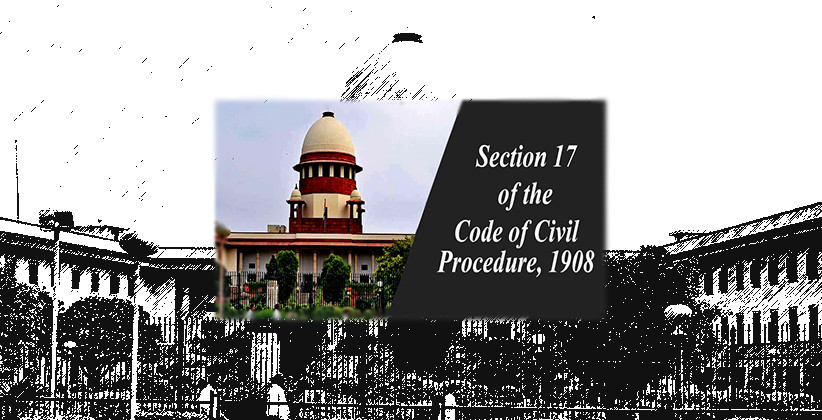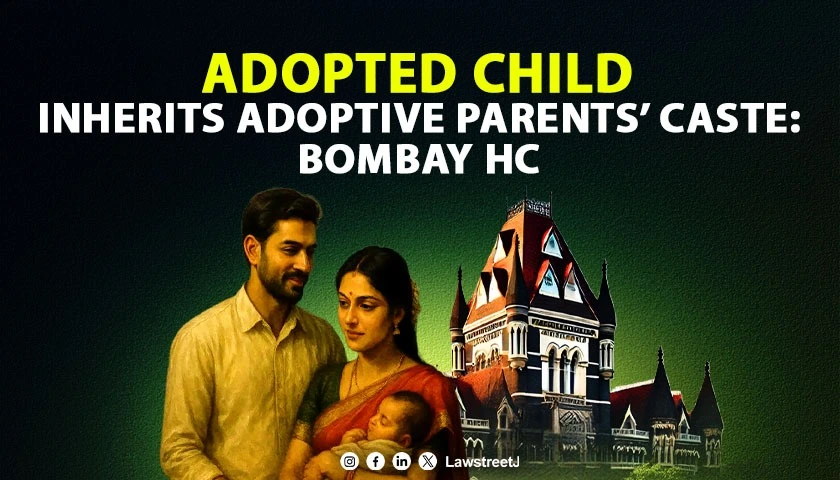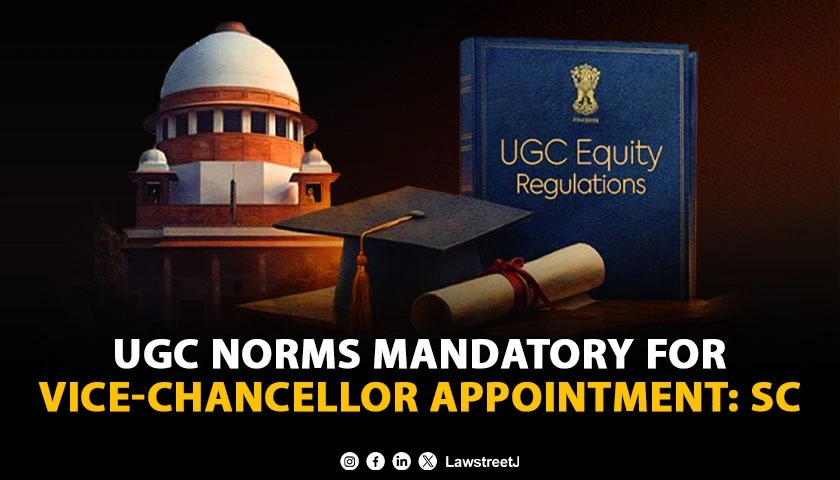The Supreme Court on February 6, 2019, in the case of Shivnarayan (D) By LRS. v. Maniklal (D) Thr. LRS. & Ors., has held that the word 'property' in Section 17 of the Code of Civil Procedure, 1908, can include more than one property.
Thereby, enlarging the scope of Section 17 by allowing an application to be filed even in those cases where the suit is concerning different properties situated in different jurisdictions. Provided, the suit is based on same cause of action with respect to the properties.
Section 16 of CPC contains the general principle that suits are to be instituted where the immovable property is situated. Section 17 engrafts an exception by stating that if portions of a property are situated in different jurisdiction, the suit can be instituted in any of the courts having jurisdiction over such portions.
The landmark judgment was passed by a Division Bench of Justices Ashok Bhushan and K.M. Joseph on an appeal filed against the judgment passed by the Madhya Pradesh High Court dismissing the writ petition of the appellant.
In this case, a civil suit was initiated seeking partition of joint family properties after setting aside certain documents of conveyance. The suit was instituted in a civil court at Indore. However, properties situated at Mumbai were also scheduled in the plaint.
The Trial Court struck off the properties in Mumbai scheduled in the plaint stating that the properties were outside the court's territorial jurisdiction. The plaintiff challenged this order in the Madhya Pradesh High Court which turned down the challenge saying that Section 17 of CPC cannot be applied to a scenario of more than one property located in different jurisdictions.
Aggrieved by the order passed by the High Court, the plaintiff moved the Supreme Court. Allowing his appeal, the court observed that "The word "property" under Section 17 of the Civil Procedure code may also be properties, hence, in a schedule of plaint, more than one property can be included. Section 17 can be applied in event there are several properties, one or more of which may be located in different jurisdiction of courts. The word "portion of the property" occurring in Section 17 has to be understood in context of more than one property also, meaning thereby one property out of a lot of several properties can be treated as portion of the property as occurring in Section 17. Thus, interpretation of word "portion of the property" cannot only be understood in a limited and restrictive sense of being portion of one property situated in jurisdiction of two courts"
Referring to Section 13 of the General Clauses Act, 1897, the court said: "We are also of the same view that the word "property" used in Section 17 can be more than one property or properties.
The court said that its reasoning was fortified by Section 39 (1)(c) of the CPC, which indicates that a decree passed by a court can deal with immovable properties situated outside its jurisdiction.
On the observations made, the court concluded the following:-
- The word 'property' occurring in Section 17 although has been used in 'singular' but by virtue of Section 13 of the General Clauses Act it may also be read as 'plural', i.e., "properties".
- The expression any portion of the property can be read as portion of one or more properties situated in jurisdiction of different courts and can be also read as portion of several properties situated in jurisdiction of different courts.
- A suit in respect to immovable property or properties situate in jurisdiction of different courts may be instituted in any court within whose local limits of jurisdiction, any portion of the property or one or more properties may be situated.
- A suit in respect to more than one property situated in jurisdiction of different courts can be instituted in a court within local limits of jurisdiction where one or more properties are situated provided suit is based on same cause of action with respect to the properties situated in jurisdiction of different courts.
Coming to the facts of the case, the Bench noted that the suit was arising out of different causes of actions pertaining to different documents executed by different defendants.
"The plaint encompasses different causes of action with different set of defendants. The cause of action relating to Indore property and Bombay property were entirely different with different set of defendants. The suit filed by the plaintiff for Indore property as well as Bombay property was based on different causes of action and could not have been clubbed together. The suit as framed with regard to Bombay property was clearly not maintainable in the Indore Courts, the court held.
Therefore, the appeal was dismissed, affirming the findings of the High Court and the Trial Court.
Read the judgment below









